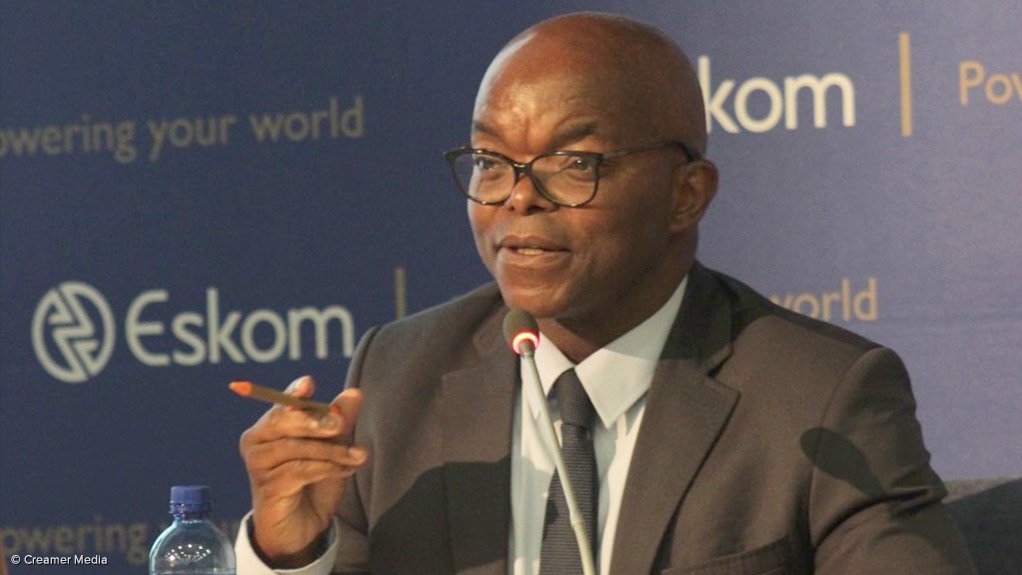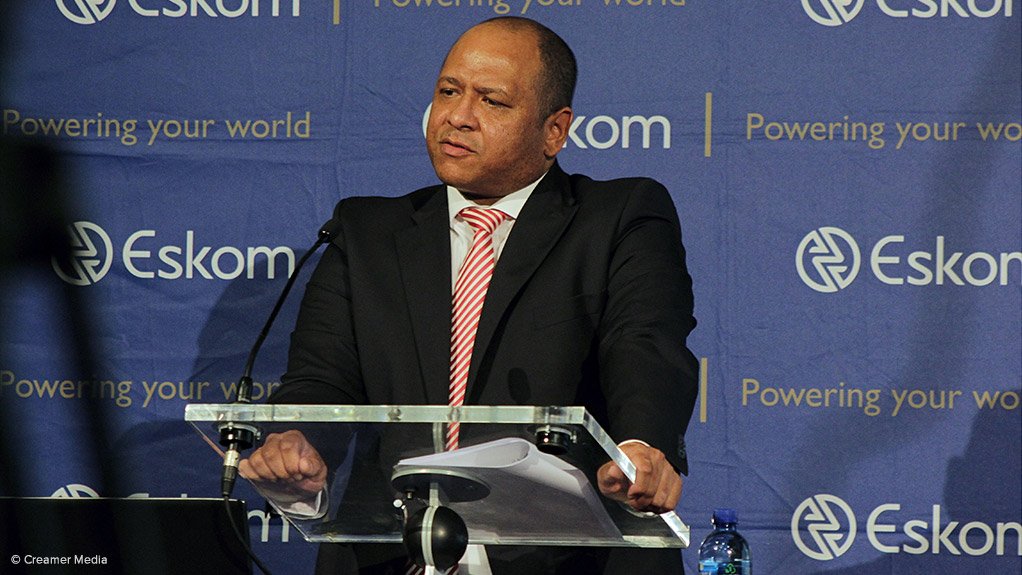Eskom’s top officials have gone to Parliament to argue their case for a higher tariff increase, saying the 5.23% tariff increase for 2018/19 granted by the National Energy Regulator of South Africa (Nersa) would seriously harm the utility.
“The 2.2% price increase for 2017/18 has strained the cash flow situation, and the 5.23% for the 2018/19 financial year will also negatively impact on Eskom’s going concern status,” Eskom CE Phakamani Hadebe said on Tuesday.
He said Eskom’s operational and financial sustainability would be threatened, as would its ability to pay back its debt.
Eskom had applied for a 19.9% tariff hike.
The Eskom board has decided to use the processes of the National Energy Regulator Act for a review of the Nersa 2018/19 revenue decision. The utility maintains that Nersa’s decision has not been made in accordance with the Electricity Regulation Act. Hadebe is hoping for a solution.
“We have a difference of opinion with the regulator but are comfortable that, at some stage, we will find a solution to it. We still hope that 2018 is not a closed issue. It is important that we come to some form of equilibrium with the regulator so that we are able to plan a clear future as we move forward,” he told Parliament’s Portfolio Committee on Energy.
Eskom’s management and board members say they are very concerned that a sub-inflation increase would chase away investors and affect the decisions of ratings agencies, which have downgraded Eskom this year and raised concerns about its financial sustainability.
Eskom acting CFO Calib Cassim said assumptions made by Nersa are incorrect and unfeasible due to the nature of Eskom's operations and elements of its cost base that are fixed. It was also incorrectly basing its decision on costs of previous years.
He said Nersa had assumed that Eskom would automatically close down two power stations, cut staff by 6 000 and slash costs by around 10% from April 1 this year.
“The decision is based on a variety of references as far back as 2008, a variety of escalations, in many cases decreases from existing levels. Particular costs are removed in entirety in certain instances,” said Cassim.
“We are struggling to understand why Nersa has changed its measurement criteria. Inconsistency on applying a methodology does not only create challenges for Eskom, but when ratings agencies make decisions, they are uncertain about regulatory decisions. That creates concerns and challenges reflected in their decisions around the downgrades.”
In a presentation to the committee, Cassim said Eskom would await response to its request to Nersa for detailed workings and models, as well as the basis for reasons for Nersa’s decision on the tariff increase.
Cassim further pointed out what he considers anomalies with the cost of staffing, as well as coal costs. He said Nersa based its decision on cutting 6 000 jobs, yet the number of Eskom customers had increased. Nersa did not consider contractual costs on coal, which were already 17% higher this year than set out in the Nersa decision for 2019.
“Nersa should, according to methodology, use the latest information around coal costs, interrogate what the existing contracts stipulate, as well as the clauses included in those contracts.”
Nersa’s calculations were based on Eskom dropping its coal costs by over 20% over the next year.
Hadebe said coal was by far Eskom’s biggest cost, at about R85-billion a year, while staff costs were about R30-billion a year.
“Nersa assumes that Eskom should have free cash flow of over R32-billion at the end of the 2018/19 year. This is based on an untenable cut in costs and incorrect capital expenditure outflows,” says Eskom.
Cassim has also argued that power stations needed to continue running, which cost money.
“If we look at our production plan, our understanding is that power stations cannot just be removed because Eskom has excess capacity. Yes, we have excess capacity at certain points of the year (in summer) but at other times of the year, those stations may be required to run.”
Cassim said Eskom also needed more money for maintenance than Nersa had factored in.
“We not only have an ageing fleet of power stations, but our networks are also ageing. We need maintenance on a methodology base, rather than just taking the actuals of previous years and growing it on inflation."
Eskom says it needs to raise R72-billion in the next 12 months. The first R20-billion would be used to pay for the bridging loan by August, while the remaining R50-billion is needed for capital expenditure.
Hadebe said Eskom was making serious efforts to tighten up its finances and save money.
The utility was doing this by containing costs and maximising revenue. The appointment of the new Eskom board had resulted in increased investor confidence, with Eskom securing the bridging loan of R20-billion.
“We are looking at reducing the capital expenditure by about R10-billion a year over the next three years. If we do that, then in 2021 and 2022, Eskom will be generating more revenue. We will have more income than the costs of servicing the debt and debt capital,” said Hadebe.
EMAIL THIS ARTICLE SAVE THIS ARTICLE ARTICLE ENQUIRY FEEDBACK
To subscribe email subscriptions@creamermedia.co.za or click here
To advertise email advertising@creamermedia.co.za or click here













